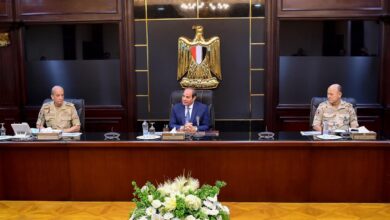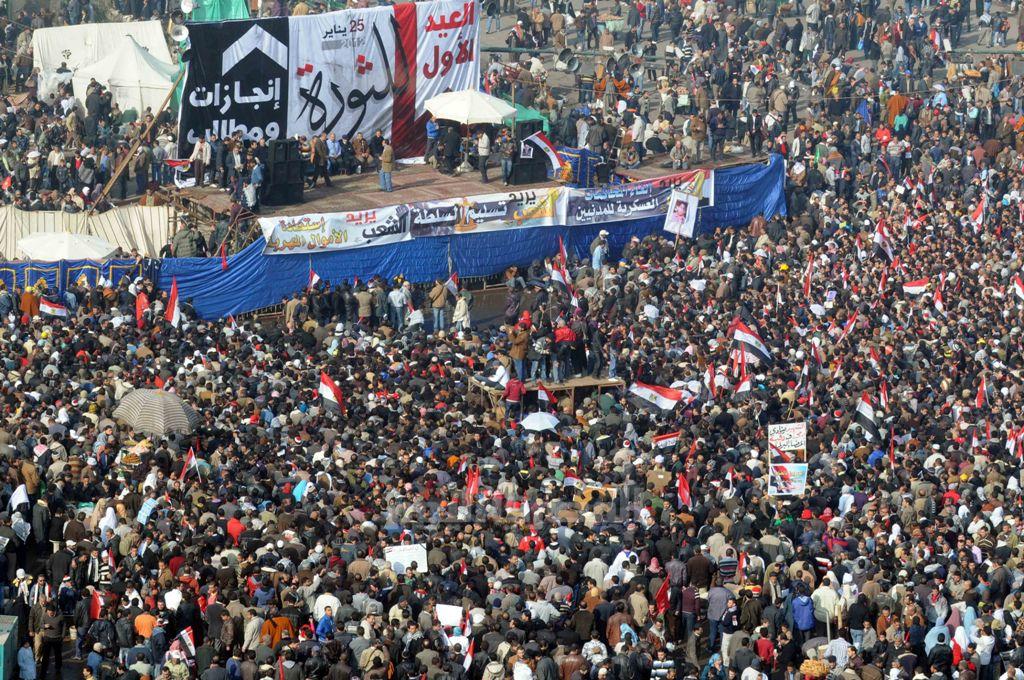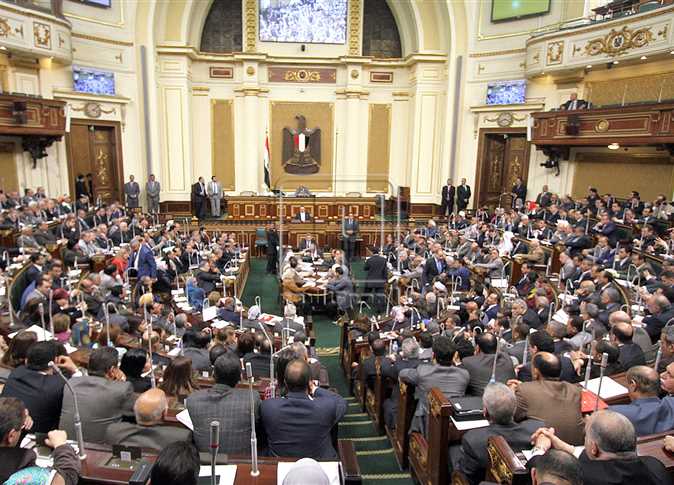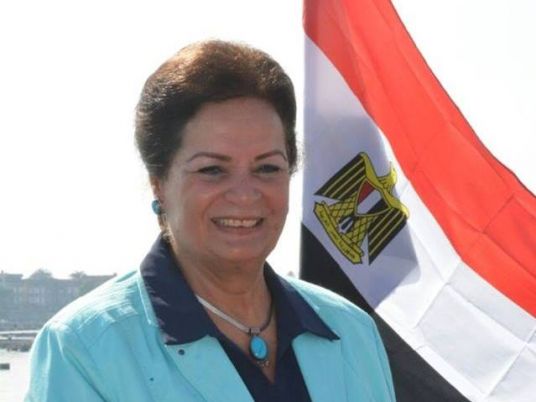As sectarian violence blamed on hard-line Salafi Muslims continues to rise, many are voicing sharp criticism of the Supreme Council of the Armed Forces (SCAF) and its transitional cabinet, accusing them of failing to apply the law so far as radicals are concerned.
“The performance has been very bad,” said Mostafa Kamel al-Sayed, political science professor at Cairo University. “The SCAF and the government have adopted strategies that can only lead to more problems.”
On Saturday, clashes erupted in the neighborhood of Imbaba, allegedly after a group of Salafi Muslims attempted to break into a church under the pretext of rescuing a woman being held captive. Many claim that woman had converted from Christianity to Islam, and had since been held prisoner by the Coptic Church. Stones, Molotov cocktails and live ammunition were exchanged in a battle that left at least 12 dead, more than 200 injured and a local church on fire.
This feud stands as the most violent episode in a series of sectarian clashes since the ouster of Hosni Mubarak in February. Some accuse the remnants of Mubarak’s regime of using Salafis as a tool to instigate such feuds. Others, meanwhile, consider sectarian violence to be a natural outcome of a weakened public order and a deep-seated culture of intolerance.
A military source told the Arabic edition of Al-Masry Al-Youm on Monday that the armed forces had obtained information about a plot to plunge the country into civil war through the provocation of sectarian feuds.
The perpetrators of the plot are remnants of the former regime, specifically the dissolved National Democratic Party, according to the source, who added that the scheme aims at spreading chaos and sabotaging the revolution.
On Sunday, the military police declared the detention of 190 people involved in the unrest, and their referral to the military prosecution.
“The military should investigate all previous sectarian crimes and penalize the culprits,” said Sayed, adding that the SCAF should also show stronger commitment to the protection of freedom of belief and of all citizens.
In early March, radicals were blamed for demolishing a church in Atfeeh, a rural area south of Cairo. Instead of bringing the culprits to justice, the military sought to contain the sectarian tension by sending prominent Salafi sheikh Mohamed Hassan to the area and having him preach coexistence.
In mid-April, Salafis were again blamed for the incitement of a protest in the Upper Egypt province of Qena that had continued for more than ten days. Demonstrators closed off main railway routes to the city in protest at the appointment of a Christian governor. The state, represented by the military and the interim government, eventually succumbed to local pressures and decided to suspend the mandate of the new governor.
Earlier, Salafis were blamed for cutting off the ear of a Coptic man in Qena. Again, instead of putting the assailants on trial, the military preferred to mediate informal reconciliation between them and the victim.
“What happened in Imbaba is a test for the Supreme Council of the Armed Forces,” said Karima Kamal, a Christian columnist, arguing that it is time for the military to apply the law firmly against aggressors and stop resorting to outdated solutions.
“The military should have been firm since the first violation. None of the incidents were handled legally. They tried to calm things down by bringing preachers to talk to Salafis or by concluding some customary reconciliation. We went 100 years back in time, to when there was still no state,” she said.
Yet, it seems that the Imbaba violence is forcing the military to change its strategy. On Sunday, the government announced that 190 suspects were arrested and referred to the military prosecutor. Meanwhile, the SCAF posted a statement on its Facebook page affirming that the assailants would receive the harshest possible sentences.
“The unfolding of events should force the military to take a clear stance [vis-à-vis Salafis]. There is a clear violation of security,” said Sherif Younis, a historian a Helwan University.
In recent decades, the term "Salafi" has been used to label groups that advocate a literal reading of Islam and seek to revive the lifestyle of the Salafor early Muslims. In Egypt, Salafism is more a school of thought, rather than an organization with a hierarchy.
The roots of the school can be found in Saudi Wahhabism, which first emerged in the 18th century in the Arabian Peninsula. Since the 1970s, Saudi Arabia has been spreading such fundamentalist ideas in Egypt by exporting radical books and financing certain Salafi activities. Egyptians working in the Gulf and then returning to Egypt have also helped to spread such views.
Under Mubarak, Salafis generally kept a low profile and remained out of politics, although they were used by the former regime to counter the Muslim Brotherhood.
During the 25 January revolution, Salafi scholars denounced protests as un-Islamic and warned Muslim youths against engaging in the uprising, but the hard-line Muslims became visible once Mubarak and his security apparatus fell. They were emboldened to stage more protests along sectarian lines. Some went further, announcing the formation of political parties to compete in the parliamentary elections slated for September.
Some observers allege that the sudden emergence of Salafis is orchestrated by Saudi Arabia, which seeks to abort the Egyptian revolution for fear that the same revolutionary model would be reproduced on its soil.
Younis expects that after the Imbaba incident, the army will deal a blow to such radical groups. However, he voiced fears that giving the military a free hand in uprooting Salafis might threaten the prospects for a transition to civil democratic rule.
“If the army hits them and gets applauded by the middle class and the intelligentsia, the military will acquire a bigger role in Egypt’s politics,” said Younis. “This will mean that the military is the one that deserves to rule.”
Since Mubarak stepped down, the military has affirmed its commitment to instating a civil democracy. Yet, skeptics remain concerned that the SCAF might groom a presidential candidate from the barracks before the presidential poll set for December.
By a similar logic, Mubarak’s regime spent many years establishing and solidifying its legitimacy. In the 1990s, secularists, liberals and Copts rallied behind him to fight armed Islamist groups. Such support allowed him to build a draconian police state that violated human rights on the pretext of defeating Islamist opponents. After succeeding in stemming terror, Mubarak groomed his regime as the sole guardian against the resurgence of violent groups. At the same time, he implemented the same notorious strategies against peaceful opposition.
Yet, Kamal Zakher, another Coptic columnist, downplays fears of such a scenario being repeated. “We never asked for the crushing of these groups by force or by extra-legal measures. We are only asking for the implementation of the law,” said Zakher. “Salafi groups do not only threaten the state as a political entity, they also threaten the nation as a whole.”
Zakher considers criticism of the military to be pointless.
“I cannot ask the military to act beyond its capabilities,” he said. “The military is not trained to handle local politics.”
Instead of criticizing the SCAF’s performance, the generals should be asked to go back to the barracks as soon as possible and hand power over to a temporary civil presidential council until elections are held, added Zakher.
Such a solution has been advanced by many liberal activists and intellectuals in recent months, but the military has thus far ignored it, insisting on maintaining the helm of state until both parliamentary and presidential elections are held later this year.




